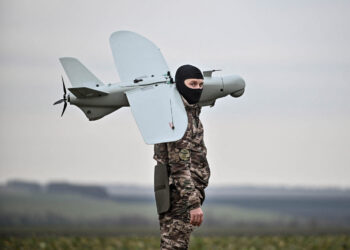, WASHINGTON: The United States is partnering with Nigeria to counter growing violence in its oil-rich delta region that is threatening an ally that has made valuable contributions to peacekeeping and regional stability in Africa, says a U.S. defense official.
Theresa Whelan, deputy assistant secretary of defense, told a March 14 forum in Washington, “There are no quick-fix solutions” to the security problems in the Niger River Delta where most of Nigeria's oil is produced. The forum was sponsored by the Center for Strategic and International Studies (CSIS).
The Niger Delta extends over an area in southern Nigeria of approximately 70,000 square kilometers and accounts for 7.5 percent of the country's land mass, according to government statistics.
Whelan said the United States had a number of joint training and equipment programs aimed at helping Nigeria's military counter the growing violence against oil facilities and their workers that threatens tens of billions of dollars in annual revenues and the more than 1 million barrels a day exported to the U.S. market. Nigeria now accounts for 8 percent of total U.S. oil imports.
Precious Omuku, a representative of Shell Oil in Nigeria, told the CSIS panel that in 2006 there had been 54 attacks against oil installations during which 11 hostages were taken by militants promoting various causes from environmentalism to political separatism.
The result is that “oil companies are now shy about going into the field,” he said.
To counter the problem, Whelan said, the Defense Department proposed a regional maritime awareness capabilities program for the Nigerian navy worth $16 million “to help the Nigerians establish greater situational awareness in the delta and try and address some of the bunkering [large-scale oil stealing] problems that contribute to the violence because it provides money to buy arms.”
In addition, she said, “We have offered to provide training and assistance in small-arms, light weapons identification so they can better understand and track the illegal weapons coming into the delta.”
Planning assistance and training also is being provided by the military to develop a riverine unit that would use patrol boats to go after the oil thieves and militants, Whelan told the panel.
The attacks, which are growing, according to Whelan, no longer are restricted to on-shore installations but involve “near” off-shore oil rigs. This poses a direct threat to the security and development plans of Nigeria, whose government depends on oil for 95 percent of its export earnings and 80 percent of total government revenues.
Whelan said, “The militants appear to be operating with almost complete impunity” and “on-shore oil production has been reduced by 500,000 barrels per day due to the insecurity and that means $1 billion a month in lost revenue” to the Nigerian government.
To make matters worse, the militant's “tactics and weaponry are increasingly sophisticated,” she said. “We observe a very gradual, but steady and consistent
EU chief calls for defense ‘surge’, says ‘time of illusions’ over
EU chief Ursula von der Leyen on Tuesday called for a "surge" in European defense spending, as the 27-nation bloc...









